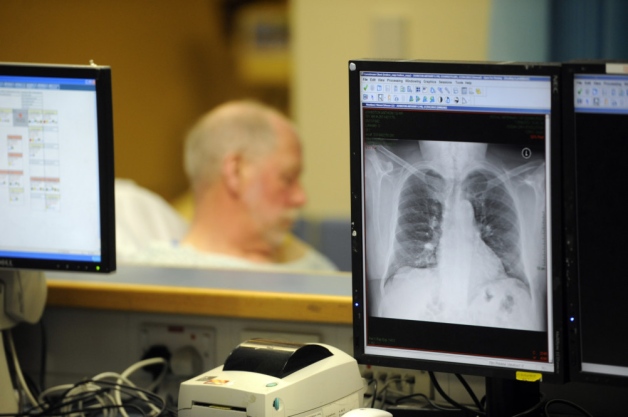Government Grants
Business Grants
Home Owner Programs
Federal Programs
About Us
Mississippi Delta Health Collaborative
The Mississippi Delta is a historically and culturally rich region of the United States.
The architecture, French, Spanish, British, and German, is as diverse as the people whose origins are European, Native American, Spanish, African, and more.
But for all its cultural wealth, there is a poverty of health and healthcare in the region.
Residents of the 18-county region contend with persistent poor health outcomes compounded by challenges to attaining preventive services and care, poor quality of care, and stagnant opportunity structures, particularly as it relates to cardiovascular disease (CVD).Roughly 1 in 10 ( 9. 9% ≈ 2 8. 6 million) adults in the US have at least 1 type of CVD, including coronary heart disease, heart failure, or stroke.
This number excludes hypertension, a risk factor for and cause of CVD but not a type of CVD.
However, hypertension or high blood pressure is a critical risk factor for stroke.
An estimated 120 million American adults (4 8. 1%) have it, most (3 in 4) don’t have it controlled, and 1 in 5 adults is unaware they have hypertension.In 2012 CVD, particularly heart disease, was the leading cause of death in the Delta (24 4. 4 deaths per 100,000).
The region’s residents experience age-adjusted death rates due to heart disease, stroke, and other CVDs that are considerably higher than national rates and the rest of Mississippi.
According to the 2018 Cardiovascular Health Examination Survey (CHES) in the Mississippi Delta, the adjusted overall prevalence of hypertension among adults in the region 18 and older was 4 2. 8%.The persistence of these outcomes in the Delta is attributable to modifiable CVD conditions and risk factors, such as high blood pressure, high cholesterol, coronary heart disease, COPD, chronic kidney disease, diabetes, and stroke.
To sufficiently address these conditions, interventions must include evidence-based and practice-based approaches that are innovative and tailored to the unique challenges and strengths of the 18-county MS Delta Region.
These interventions are needed in strategies that are focused on health systems, team-based care, and linkages to community resources and clinical services that address the social conditions that contribute to the prevalence of CVD in the MS Delta Region.
This cooperative agreement builds from lessons learned from previous iterations.
It focuses on policy, systems, and environmental changes that impact clinical and community settings and lifestyle changes that reduce uncontrolled blood pressure and CVD within the MS Delta Region.
The architecture, French, Spanish, British, and German, is as diverse as the people whose origins are European, Native American, Spanish, African, and more.
But for all its cultural wealth, there is a poverty of health and healthcare in the region.
Residents of the 18-county region contend with persistent poor health outcomes compounded by challenges to attaining preventive services and care, poor quality of care, and stagnant opportunity structures, particularly as it relates to cardiovascular disease (CVD).Roughly 1 in 10 ( 9. 9% ≈ 2 8. 6 million) adults in the US have at least 1 type of CVD, including coronary heart disease, heart failure, or stroke.
This number excludes hypertension, a risk factor for and cause of CVD but not a type of CVD.
However, hypertension or high blood pressure is a critical risk factor for stroke.
An estimated 120 million American adults (4 8. 1%) have it, most (3 in 4) don’t have it controlled, and 1 in 5 adults is unaware they have hypertension.In 2012 CVD, particularly heart disease, was the leading cause of death in the Delta (24 4. 4 deaths per 100,000).
The region’s residents experience age-adjusted death rates due to heart disease, stroke, and other CVDs that are considerably higher than national rates and the rest of Mississippi.
According to the 2018 Cardiovascular Health Examination Survey (CHES) in the Mississippi Delta, the adjusted overall prevalence of hypertension among adults in the region 18 and older was 4 2. 8%.The persistence of these outcomes in the Delta is attributable to modifiable CVD conditions and risk factors, such as high blood pressure, high cholesterol, coronary heart disease, COPD, chronic kidney disease, diabetes, and stroke.
To sufficiently address these conditions, interventions must include evidence-based and practice-based approaches that are innovative and tailored to the unique challenges and strengths of the 18-county MS Delta Region.
These interventions are needed in strategies that are focused on health systems, team-based care, and linkages to community resources and clinical services that address the social conditions that contribute to the prevalence of CVD in the MS Delta Region.
This cooperative agreement builds from lessons learned from previous iterations.
It focuses on policy, systems, and environmental changes that impact clinical and community settings and lifestyle changes that reduce uncontrolled blood pressure and CVD within the MS Delta Region.
Agency: Department of Health and Human Services
Office: Centers for Disease Control - NCCDPHP
Estimated Funding: $15,750,000
Office: Centers for Disease Control - NCCDPHP
Estimated Funding: $15,750,000
Obtain Full Opportunity Text:
https://bja.ojp.gov/funding/opportunities/o-bja-2024-172094
Additional Information of Eligibility:
Financial assistance from this Notice of Funding Opportunity will be provided only to the Mississippi Department of Health /Mississippi Delta Health Collaborative (MDHC).
No other applications will be solicited or reviewed.
Full Opportunity Web Address:
https://bja.ojp.gov/funding/opportunities/o-bja-2024-172094
Contact:
Agency Email Description:
MSDelta24-0059@cdc.gov
Agency Email:
Date Posted:
2024-04-18
Application Due Date:
Archive Date:
2024-07-17
Social Entrepreneurship
Spotlight
Social Enterprises: Key to Enhancing a Nation’s Health

Glasgow Caledonian University (GCU) has launched a series of noteworthy research projects to learn if social enterprises can help Scotland lose its “sick man of Europe” label and boost the nation’s overall health.
